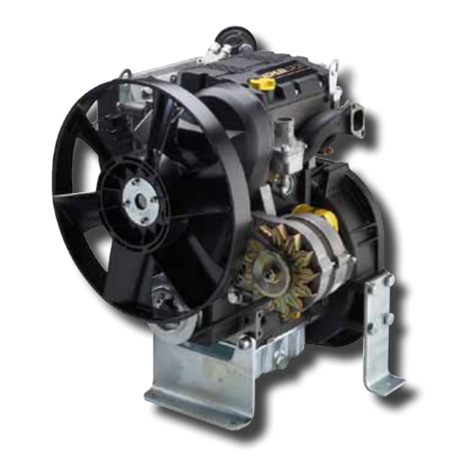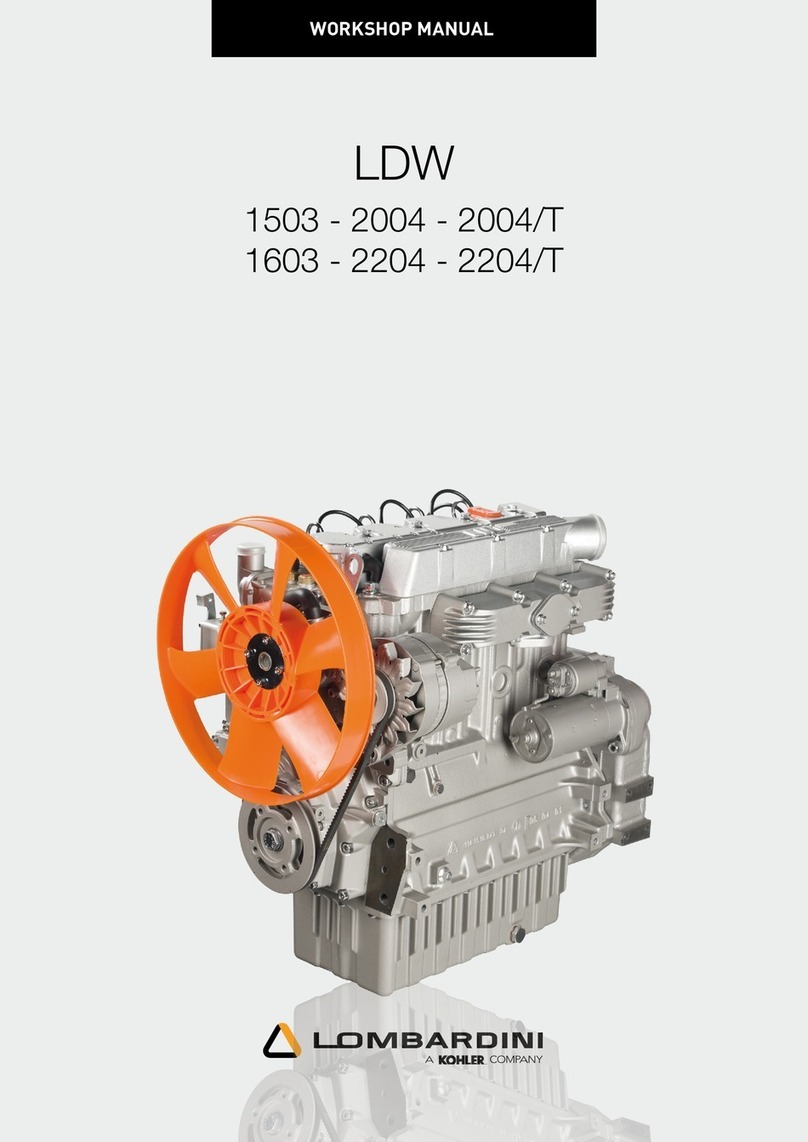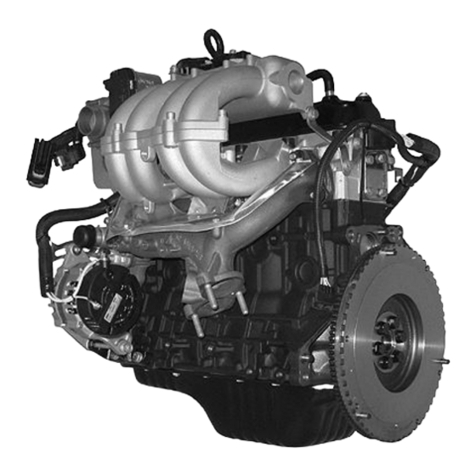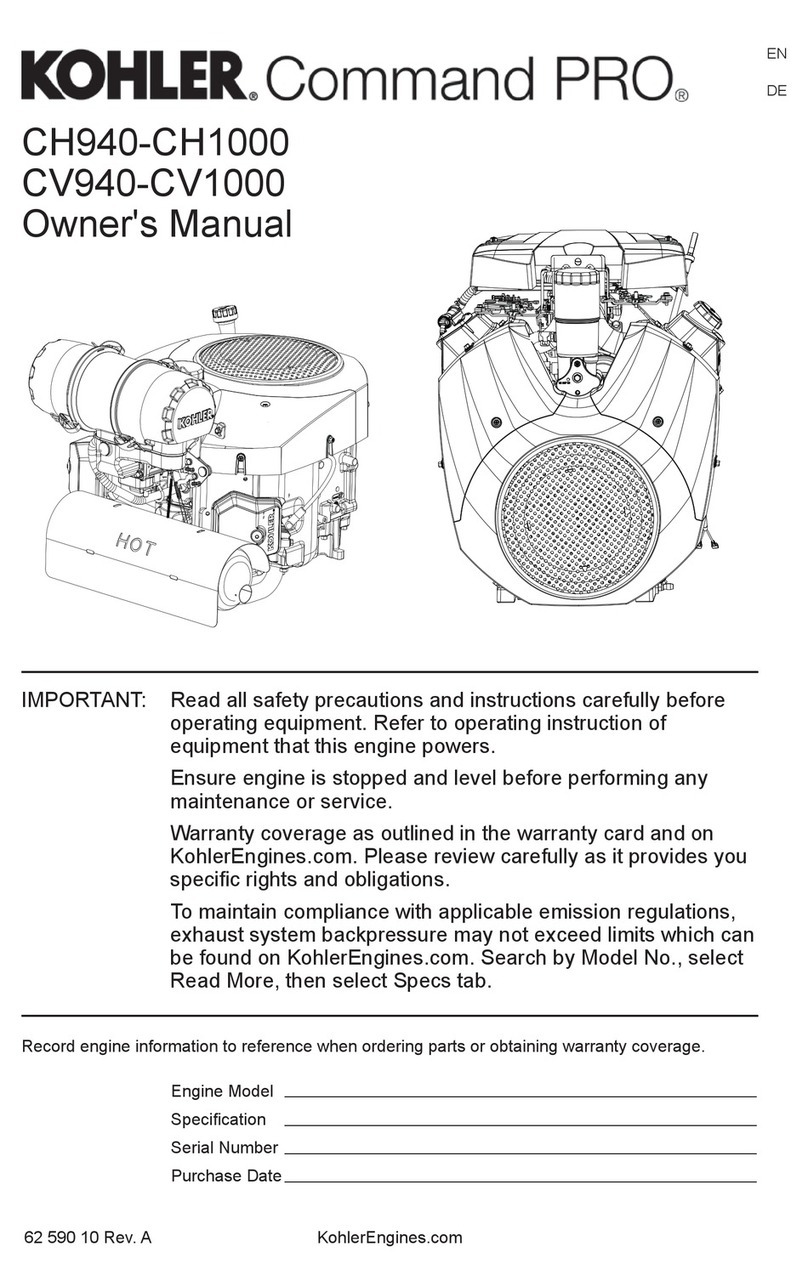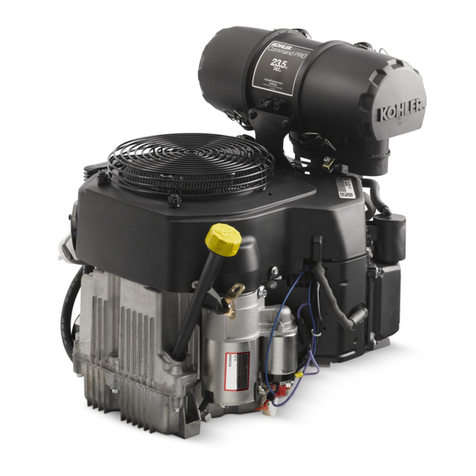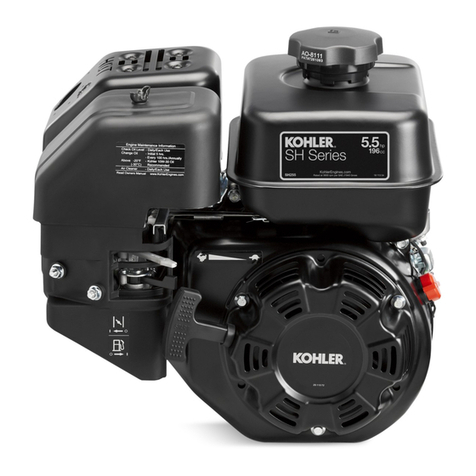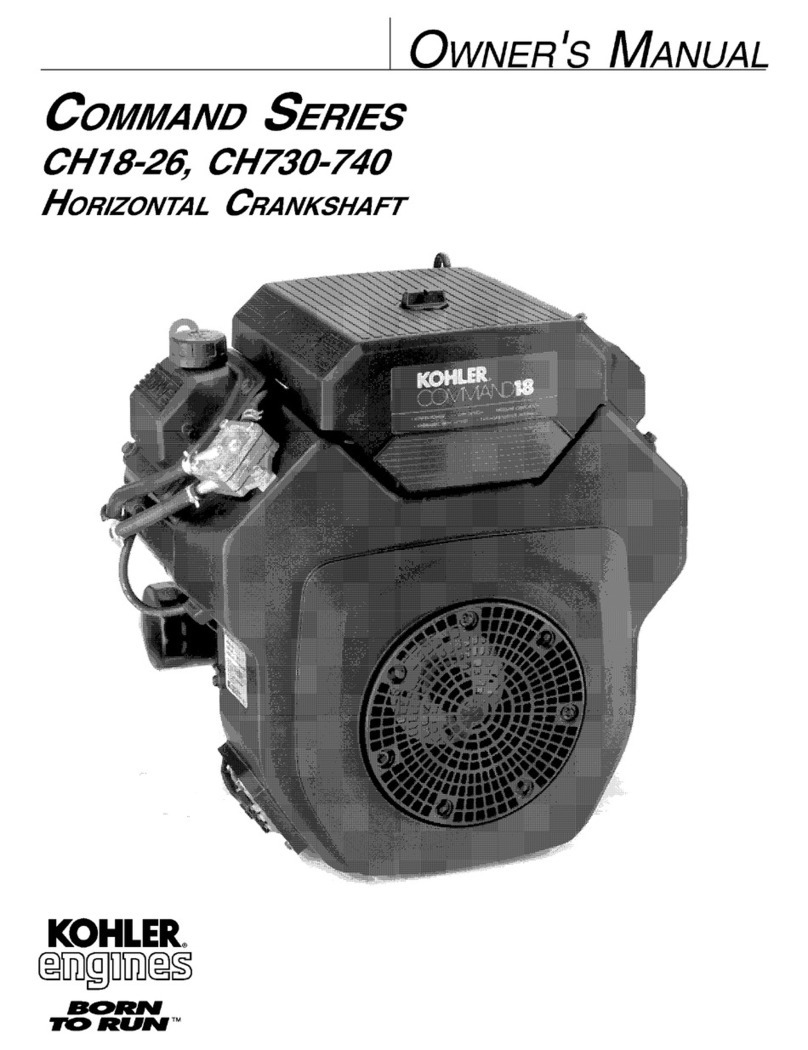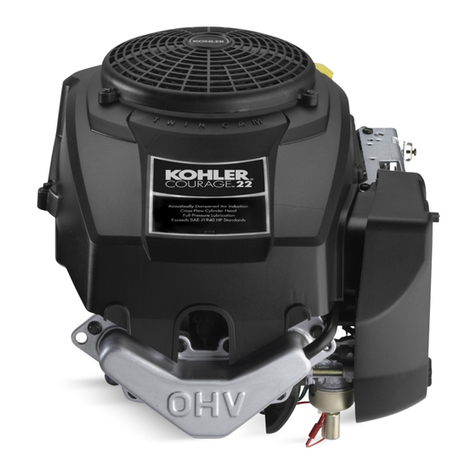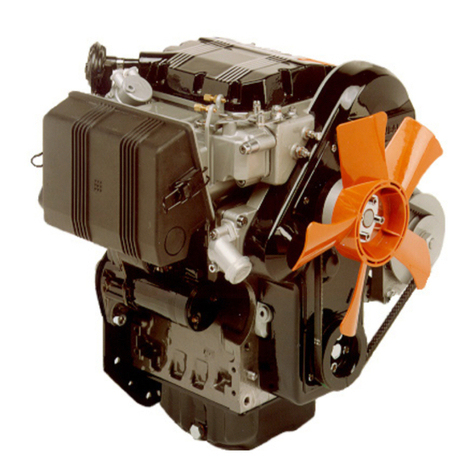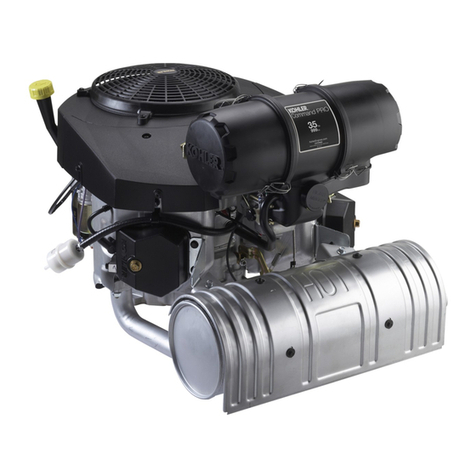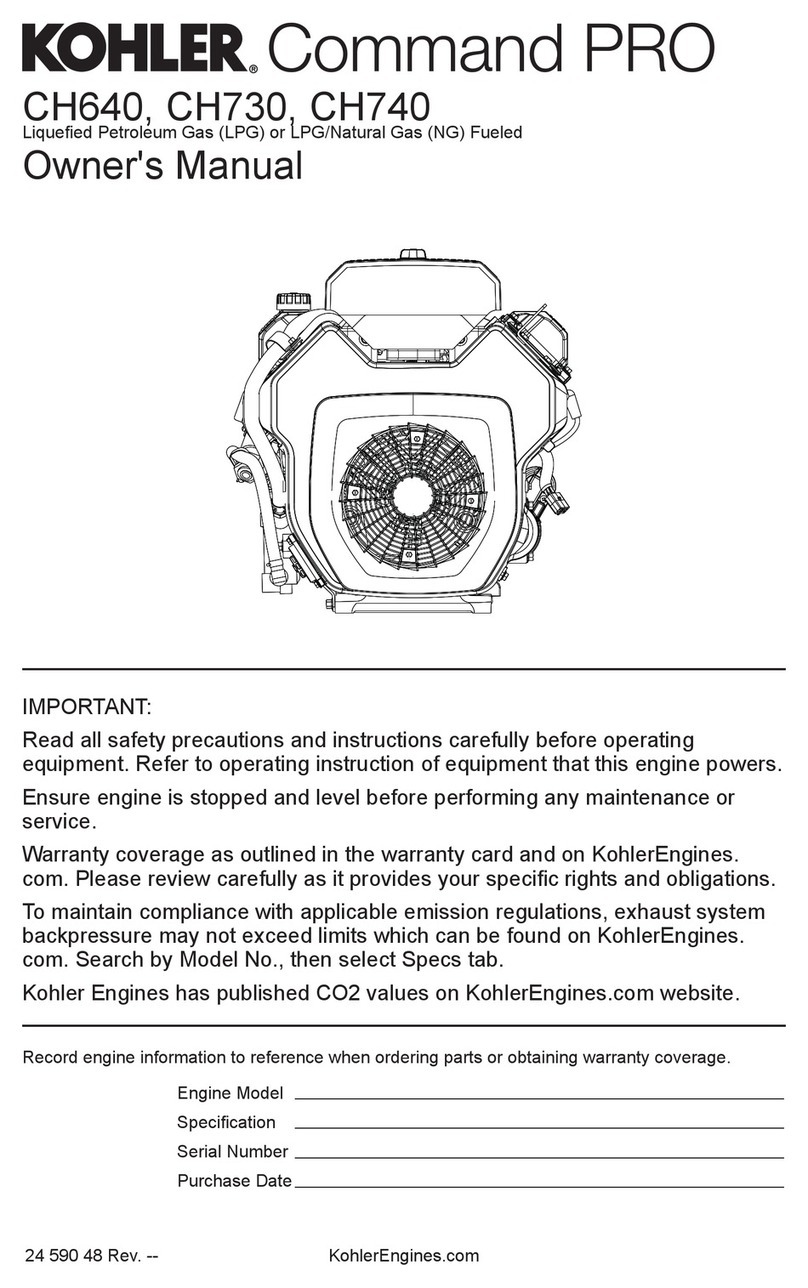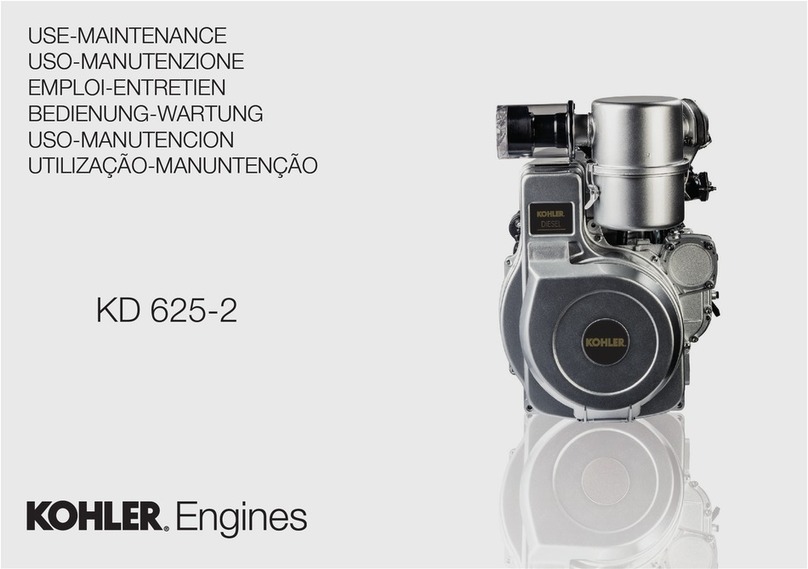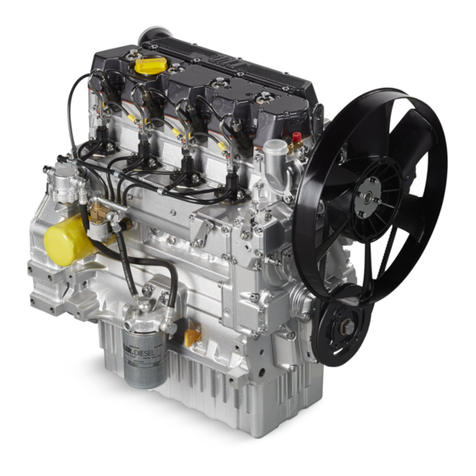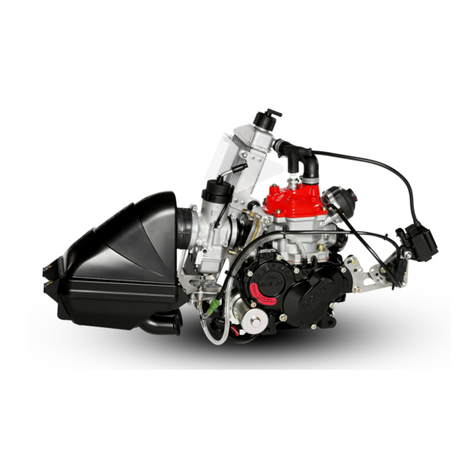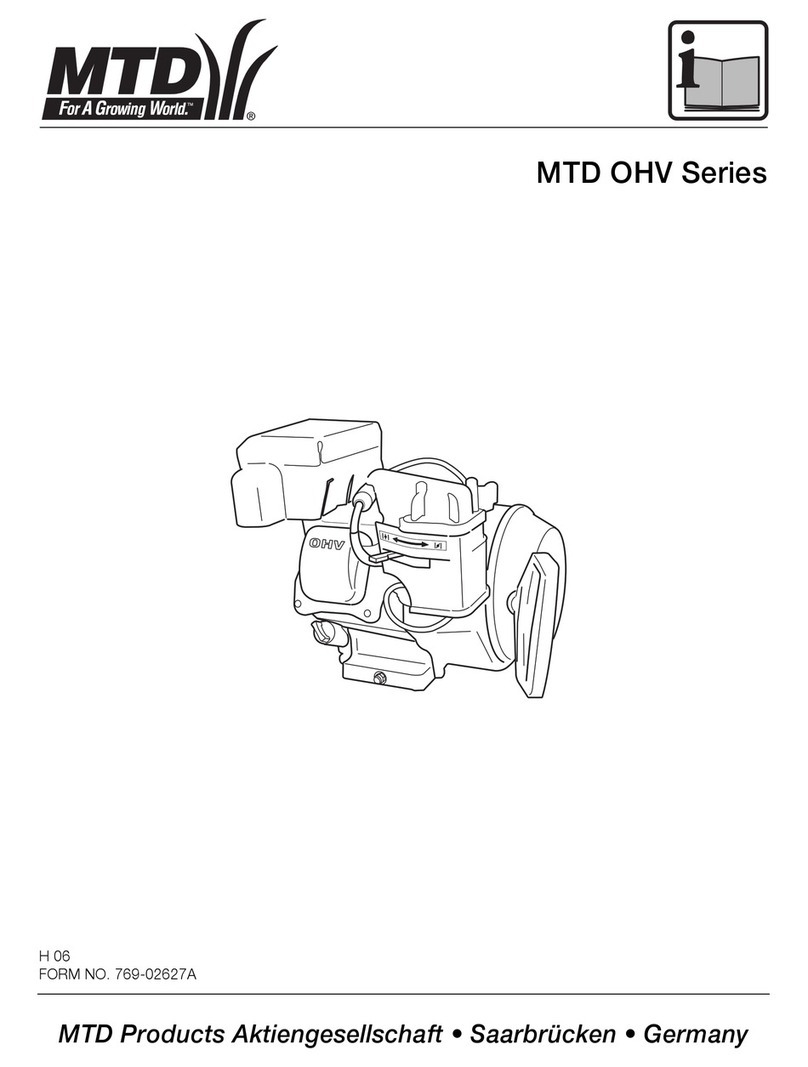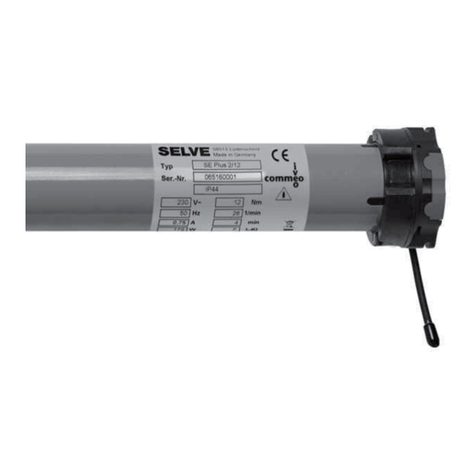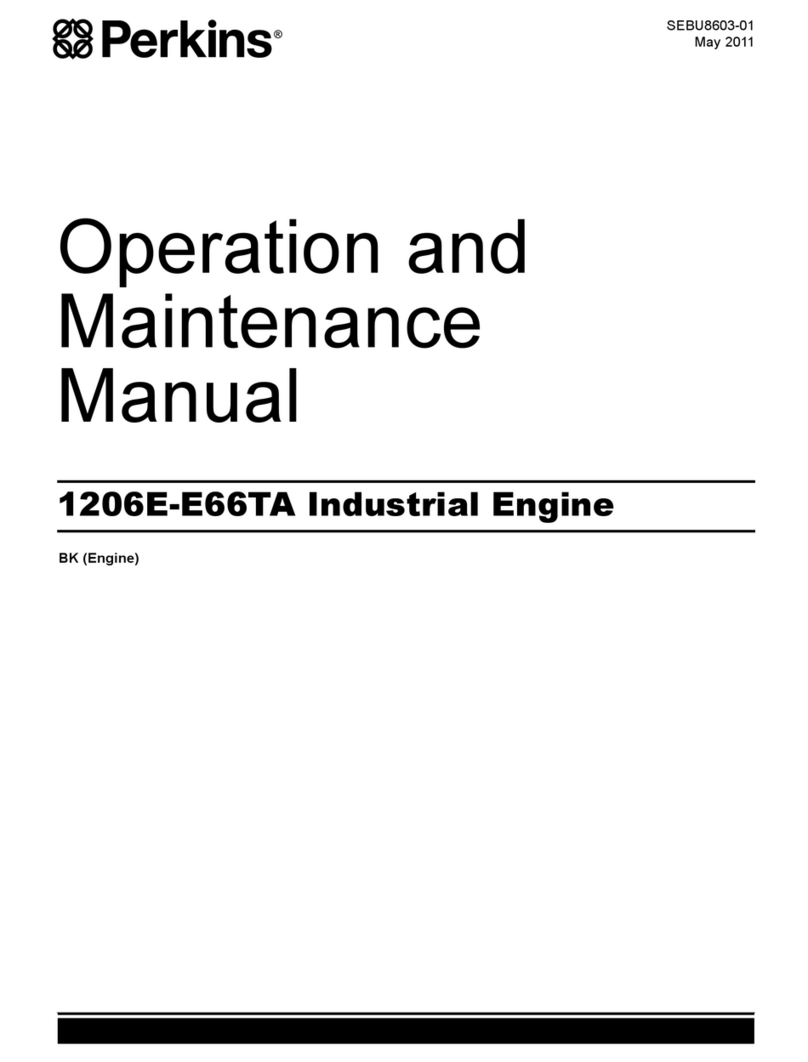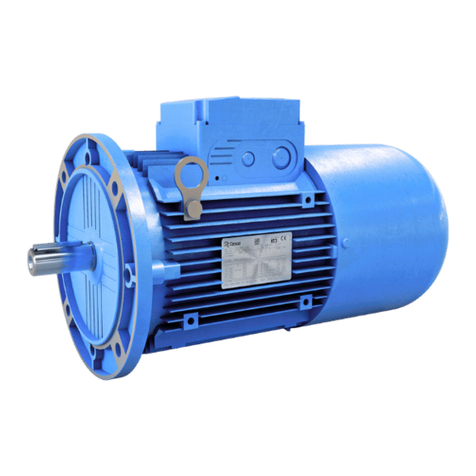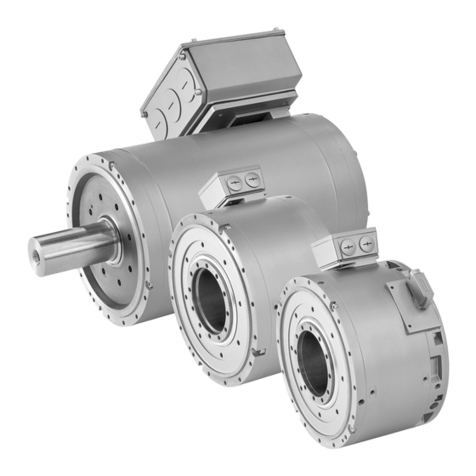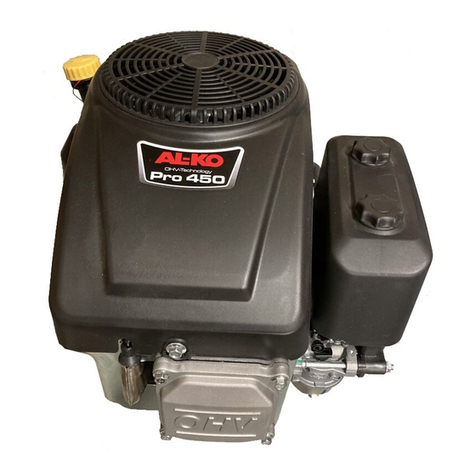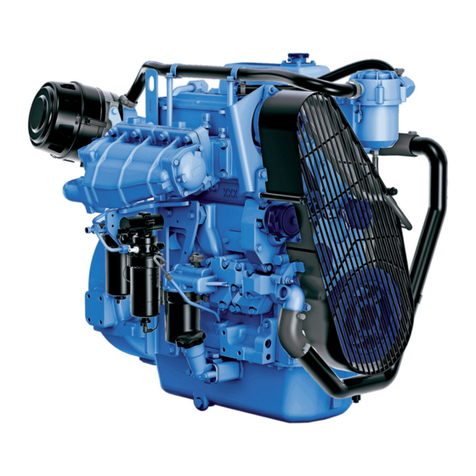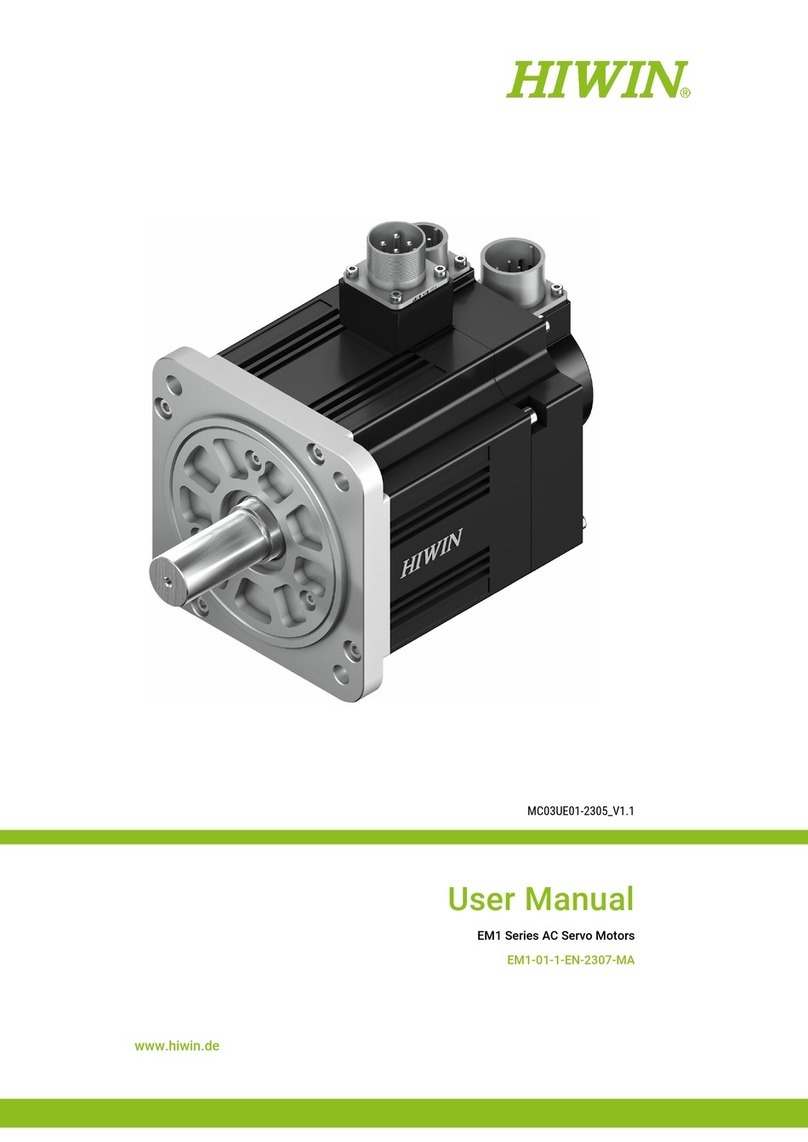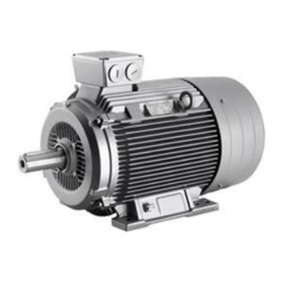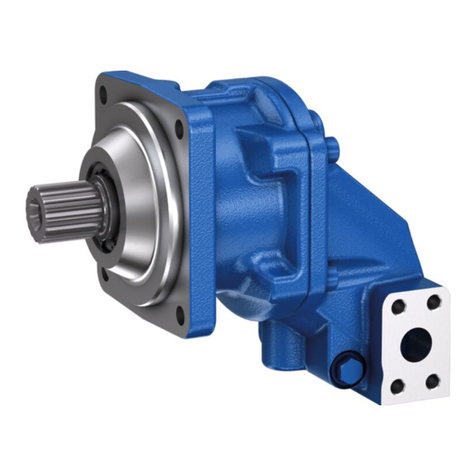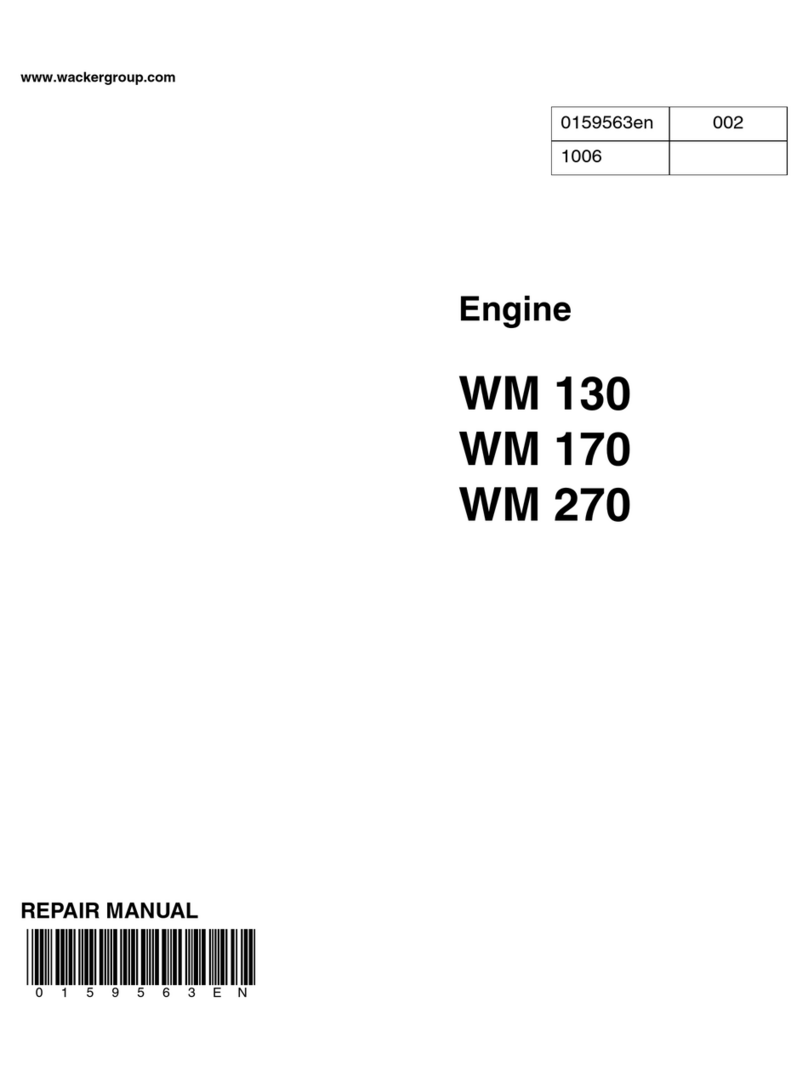
1.4
Section 1
Safety and General Information
Oil Recommendations
Using the proper type and weight of oil in the
crankcase is extremely important. So is checking oil
¢ȱȱȱȱ¢ǯȱȱȱȱȱ
correct oil, or using dirty oil, causes premature engine
wear and failure.
Oil Type
Use high-quality detergent oil of ȱǻȱ
ȱǼȱȱȱȱȱ. Select
the viscosity based on the air temperature at the time
of operation as shown in the following table.
Refer to Section 6, Lubrication System for detailed
procedures on checking the oil, changing the oil and
ȱȱȱęǯ
Fuel Recommendations
WARNING: Explosive Fuel!
ȱȱ¡¢ȱĚȱȱȱȱȱ¡ȱ
if ignited. Before servicing the fuel system, make sure there
ȱȱǰȱȱĚȱȱȱȱȱȱ
nearby as these can ignite gasoline vapors. Disconnect and
ground the spark plug leads to prevent the possibility of
sparks from the ignition system.
General Recommendations
Purchase gasoline in small quantities and store
in clean, approved containers. A container with a
¢ȱȱŘȱȱȱȱȱȱȱȱȱ
recommended. Such a container is easier to handle
and helps eliminate spillage during refueling.
ȱȱȱȱĞȱȱȱȱȱǰȱ
to minimize gum deposits in your fuel system and to
ensure easy starting.
Do not add oil to the gasoline.
ȱȱęȱȱȱǯȱȱȱȱȱȱȱ
expand.
Fuel Type
ȱȱǰȱȱ¢ȱǰȱǰȱȱ
gasoline with a pump sticker octane rating of 87 or
higher. In countries using the Research method, it
should be 90 octane minimum.
Unleaded gasoline is recommended as it leaves
less combustion chamber deposits and reduces
harmful exhaust emissions. Leaded gasoline is not
recommended.
Gasoline/Alcohol blends
Gasohol (up to 10% ethyl alcohol, 90% unleaded
gasoline by volume) is approved as a fuel for Kohler
engines. Other gasoline/alcohol blends are not
approved.
Gasoline/Ether blends
Methyl Tertiary Butyl Ether (MTBE) and unleaded
gasoline blends (up to a maximum of 15% MTBE by
volume) are approved as a fuel for Kohler engines.
Other gasoline/ether blends are not approved.
NOTE: Using other than service class SJ or higher oil
or extending oil change intervals longer than
recommended can cause engine damage.
DZȱ ¢ȱȱȱȱȱęȱ
may be used with oil changes performed
at the recommended intervals. However, to
allow piston rings to properly seat, a new or
rebuilt engine should be operated for at least
50 hours using standard petroleum based oil
before switching to synthetic oil.
ȱȱȱ¢ȱȱȱȱęȱȱȱ
ȱȱȱȱ¢ȱǯȱȱȱŗȬřǯ
Figure 1-3. Oil Container Logo.
5W-20, 5W-30
RECOMMENDED SAE VISCOSITY GRADES
10W-30
Kohler 10W-30
°F -20 0 20 32 40 60 80 100
°C -30 -20 -10 0 10 20 30 40
TEMPERATURE RANGE EXPECTED BEFORE NEXT OIL CHANGE
* Use of synthetic oil having 5W-20 or 5W-30 rating is acceptable,
up to 4°C (40°F)
** Synthetic oils will provide better starting in extreme cold below
23°C (-10°F)
** *
SAE
10W-30
A
P
I
S
E
R
V
I
C
E
S
J
